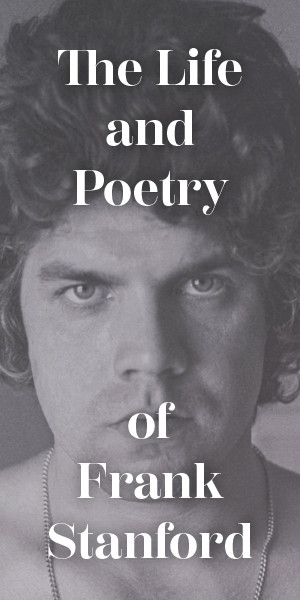
Photo by Zachary Gray
The Only Exception
On Paramore and forgiving past selves
By Maggie Boyd Hare
In the year 2009, Hayley Williams of the band Paramore was in love, and I was in youth group. At the time, the Nashville-based band was known for their bracing, teen-angst-ridden pop-punk. And I was fourteen, sitting quietly in a church pew in a northern Kentucky suburb, known for being the pastor’s kid.
When Paramore wrote about love, it was dark, cynical, and it went hard—their fierce lyrics intensified by Hayley’s dynamic and passionate delivery. In her twenty years, she hadn’t seen a love that lasted, but she was with someone new, and it felt real. “The Only Exception,” a slow single from the band’s 2009 release Brand New Eyes, is an ode to these feelings; she was on her “way to believing.” The song—which spent twenty weeks on the Billboard Hot 100 and was eventually nominated for a Grammy—comes quietly, a departure for Paramore musically as much as lyrically. It opens with a three-chord progression and a worship band strum pattern, like something I wanted a crush to sit down and play for me. Hayley sings about the past that taught her to stay guarded—when I was younger, I saw my daddy cry, she sings, he broke his own heart and I watched, her voice controlled as always, but softer than usual, almost sweet. Still, you can sense the power behind it. Even as she crests to a high note like on the line I’ve always lived like this, hard emotion tugs beneath the surface. She lets this feeling through at one point, releases into a near scream, singing, I’ve got a tight grip on reality, but I can’t let go of what’s in front of me here. All of Hayley’s music has this commanding quality—there is a world of emotional vocal range at her fingertips, but you can feel the precision, and the possibility surrounding it.
In youth group in the evangelical South, there were rules about the body and the mind. Some came directly, some of it was in the air. I spent most Sunday nights gathered with other teens in an upstairs room, filled with ping-pong tables and shelves of old books and CDs, to sing worship songs, have Bible study, and play games. This was most of my social life. Once a year, there was a retreat called Discipleship Now! where volunteer leaders divided the boys and girls. They let us settle on our mildewed couches in our separate rooms and said to the boys, do not look at porn, do not want sex, do not touch yourself, and repent when any of this crosses your mind. To the girls they said, guard your heart. And it meant: You don’t need rules about sex because you are not sexual, but do not cause your brothers to stumble. What was in the air was this sense that there was a way you should be, a boundary you recognized when you came up against it. There were values that came this way—what to wear, how to vote, what to think about abortion. But it got subtler, and there were limits to what emotions were allowed—feeling too sad, too angry, or any desire was beyond the line.
Hayley was with that someone new for ten years. They were both musicians, so their life revolved around album and tour cycles; they were together for almost three of Paramore’s. Their relationship began two years before the release of “The Only Exception”—he was married, she was a teenager. She internalized the shame of that beginning for their entire relationship. The end of their decade together was punctuated with an engagement, a marriage. Hayley wore combat boots with her Vera Wang wedding dress, part of her punk aesthetic, but they were heavy—she says she sounded like “doom, doom coming down the aisle.” Shortly after, her body turned against her: She stopped eating for days at a time and got inexplicable welts up her wrists. She listened to this. Sixteen months after the wedding, she moved out of their Nashville home and asked for a divorce. She went on tour with Paramore, removing “The Only Exception” from their set list for the first time in eight years. When she returned from the road, she entered intensive therapy. She said in an interview, two years into the process, “I realized as I was kind of untangling a lot of knots in myself that there are so many ways that I learned how to love that are just not right, and unlearning something that you’re thirty-one years in on is tough.”
I was a wide-eyed teen, earnest and romantic. I felt a lot, wanted so much—friends, a boyfriend, to belong and be understood—normal teenage things. I also wanted to be good. I kindly, and often without realizing it, minded the lines. I snipped off or crammed down anything that reached outside them: feeling, desire, musical taste. I listened to film scores from my favorite movies (Hugo, Chocolat, Finding Neverland), singer-songwriter CCM (Christian Contemporary Music), and the rock band BarlowGirl (Paramore for Christian girls). I know I also listened to “The Only Exception” regularly as a teen; Paramore was known to have Christian roots, so I felt safe soaking in the song’s rich emotional sweep. I rarely allowed anyone to be my “only exception,” even in my mind, but as each chorus unfolded—Hayley repeating simply, you are the only exception, with growing conviction—the music swelled, and I was washed in a flood of feeling that gave way to the same surrender I felt singing at youth group, hands to my chest, eyes closed.
Looking on my Facebook profile for any evidence of these transportive moments, I come across this status in a sea of similar proclamations: “Is there any teenager in the world that would rather listen to Rich Mullins than rock…other than me?” The benign status declaring my love for this melancholy Christian musician, beloved in the ’90s, and all the statuses surrounding it—“Maggie Boyd is in love with the one who first loved her (not a boy Jesus),” “Maggie Boyd is about to sit down with her family to watch ‘Return of the King.’ Does the fact that I’ve been looking forward to this all day make me a nerd?” “Love came down at Christmas.… seriously think about the depth of that”—fill me with visceral shame: neck prickling, skin cold. I can sense in every sentence my calculating lips, my need to keep the rules. I have said for years that I resented the restriction itself, and I do. But this is new: I resent the self that negotiated it. I can recognize how many factors were at play for my younger self. I’ve got a tight grip on reality. Resentment, shame, and even sadness are difficult emotions for me, and my reflex against them is a litany of logic: So many teenagers assemble an odd self out of whatever is in reach to feel like they’re okay and like maybe someone will like them; You were doing your best; You had a strange system of tools. But there can be healing, I think, in a momentary release of logic. I have to experience what’s there—in this case, self-loathing—without rushing in to do better.
I’ve been listening to “The Only Exception” on repeat. I still feel a catch in my throat from the first notes of the second chorus—the melody gets so big, electric guitar twinkling like light on water, and Hayley’s voice carries me through an old and open door to surrender. Permission for that teenage self to exist as she is—lonely and trying—blooms in that place.
There are a handful of articles and podcasts in which Hayley is candid about her healing process, the work that she’s doing to make art and a life. Recognition stirs in me when I listen to these. Our paths are different, but we both came up in the air of the evangelical South, learning to negotiate those invisible boundaries. I see the inner work she’s doing for liberation—caring for young, tender versions of herself, examining generational trauma, exorcising internalized systemic bullshit, and I recognize the path I’ve only started walking down toward my own healing. I sometimes cry when I watch her recent live performances because she looks free: genuinely happy, surrounded by the people she loves, dancing around the stage in whatever clothes make her feel good, beaming, belting out the words she’s written year after year to find herself. I feel in so many ways like I’m only beginning to heal, am only beginning to find my way into the person that I am, with space for my full range of emotion and real, multifaceted love for every self I contain. Witnessing Hayley is like a window into a possible future.
At the time of this writing, “The Only Exception” is back on the setlist for Paramore’s world tour. Hayley often gives the song an introduction. She talks about why she’s wanted to leave it off—she was embarrassed because her feelings and perspective changed, she was worried she’d feel like a liar. She says they brought it back to reclaim it. She reclaims it over and over. She says, “it’s a love song…think of the good parts,” she says, “you fall in love with other things, other people, friends, even best friends, it doesn’t even have to be romantic love,” she dedicates it to the fans, “it’s been a pleasure and a true honor to grow up alongside you,” she dedicates it to “our queer family…for not being ashamed of who we are, and for loving who the fuck we love.” I watch video after video of her spinning in a shower of silver sparks while a crowd of thousands waves their cellphones. She gives her all on the last chorus, sings high notes that aren’t on the original recording, bends her body to let them out. Then she says, “just you and me now,” the band drops out, and she kneels at the edge of the stage, turning the mic out to pick up the thousands of voices in whatever vast room singing, I’m on my way to believing.




